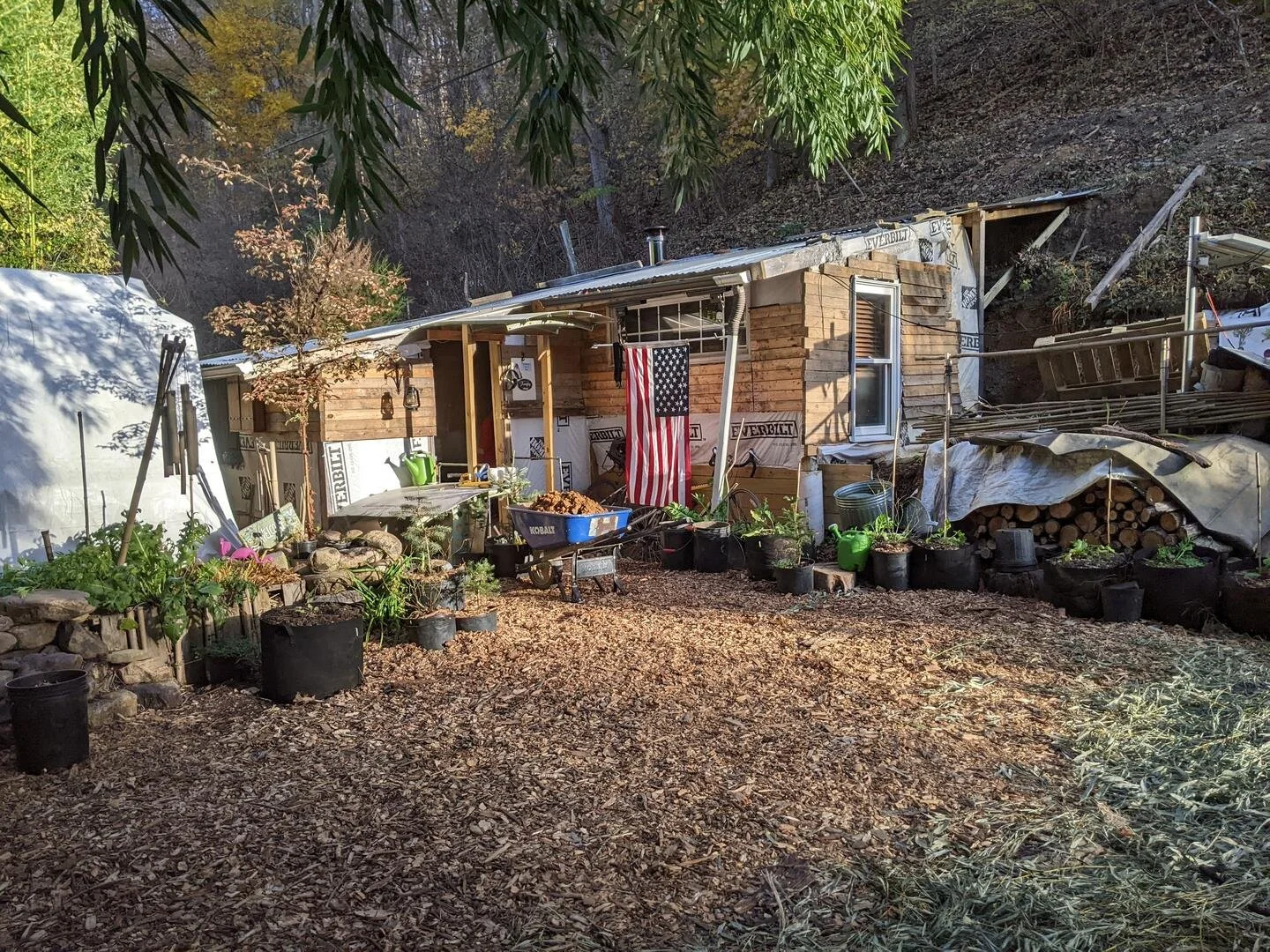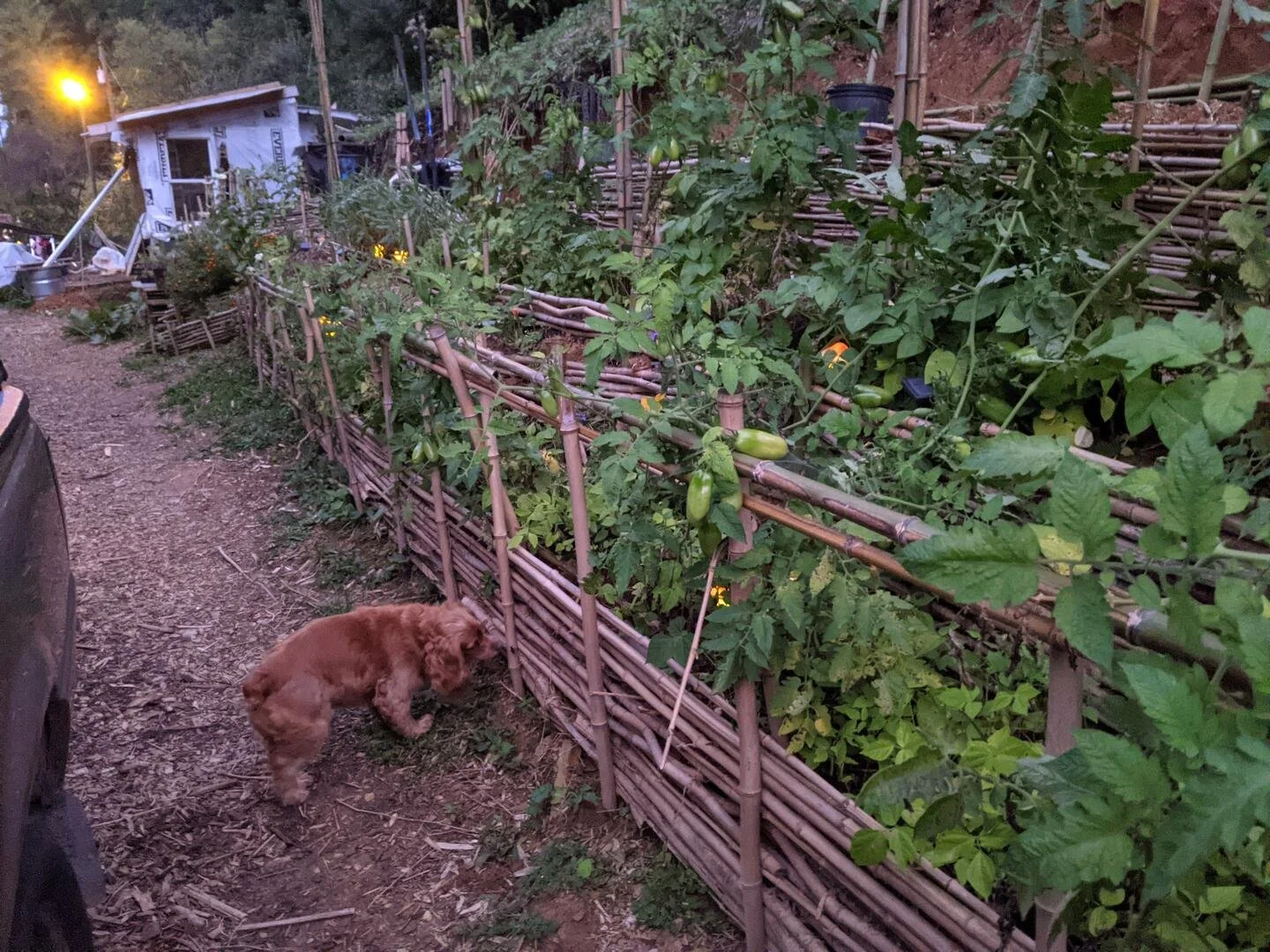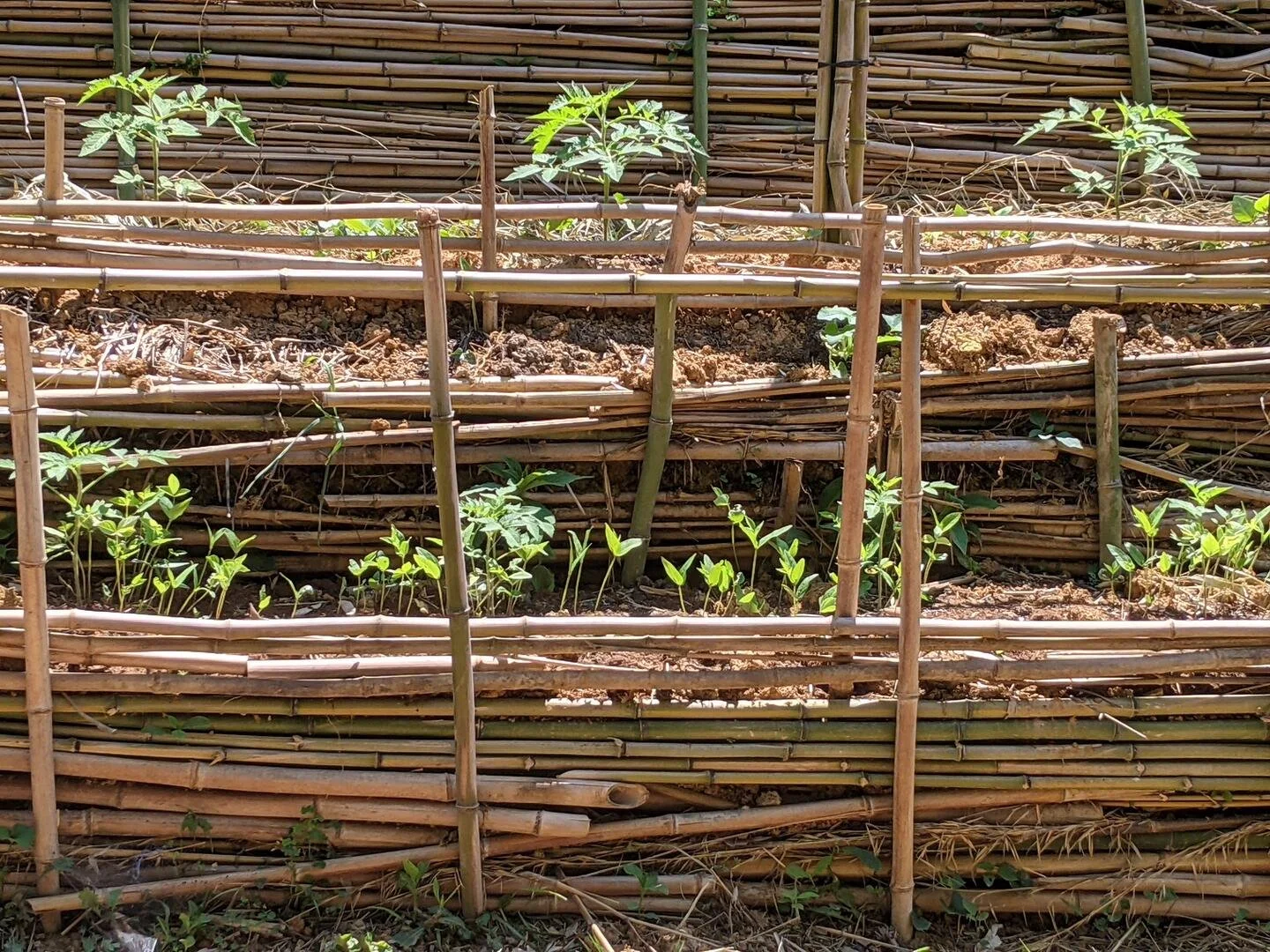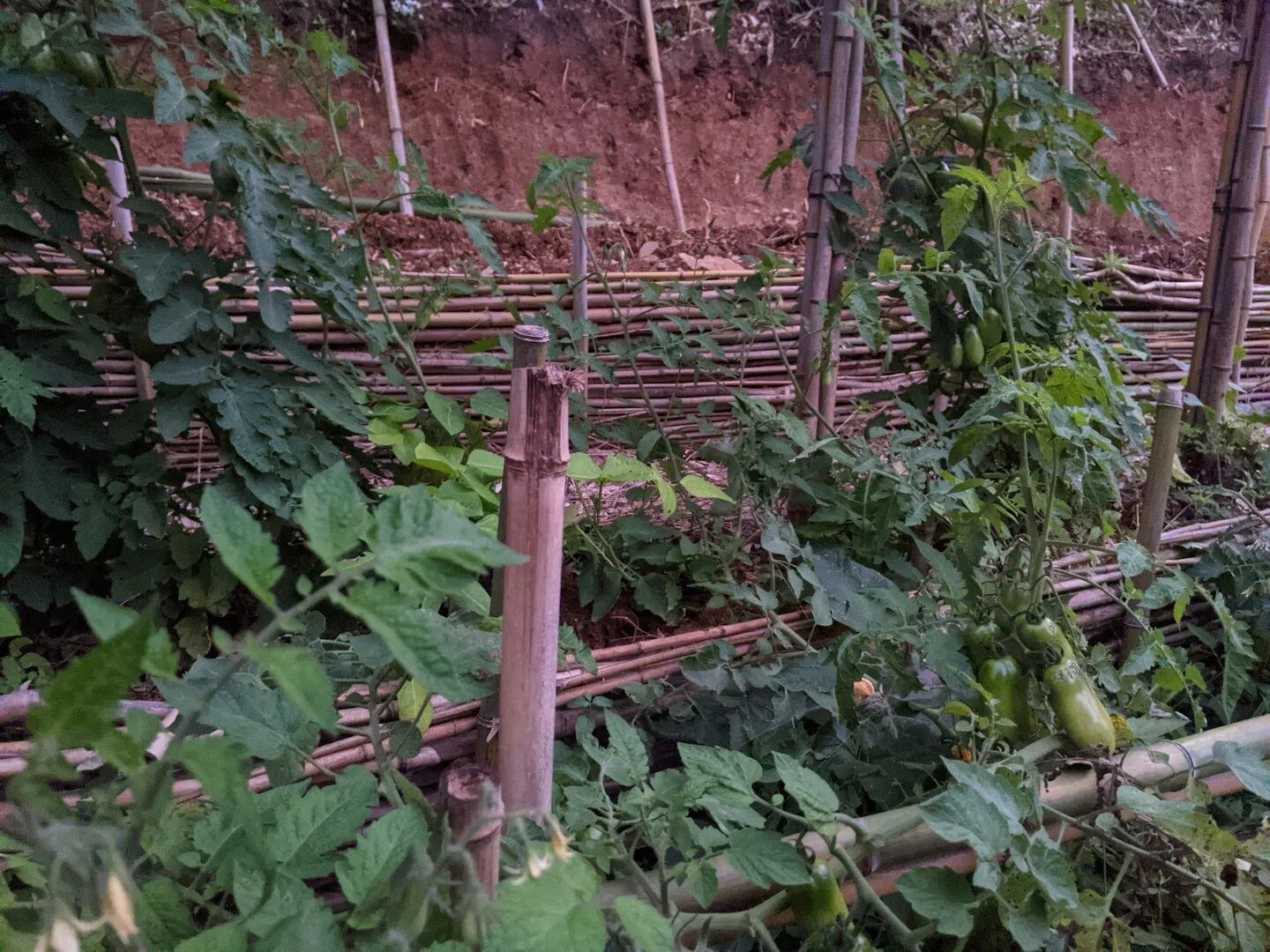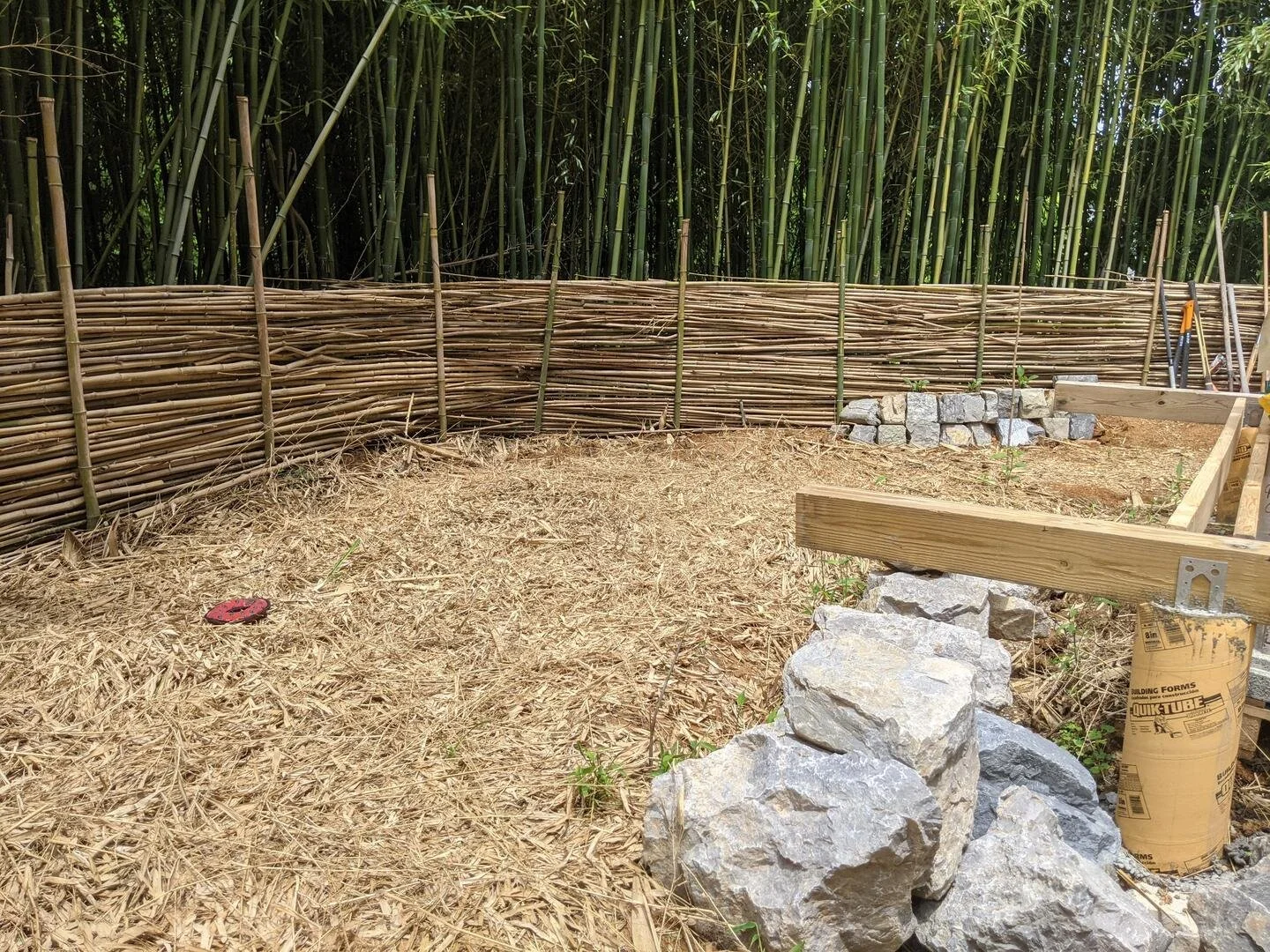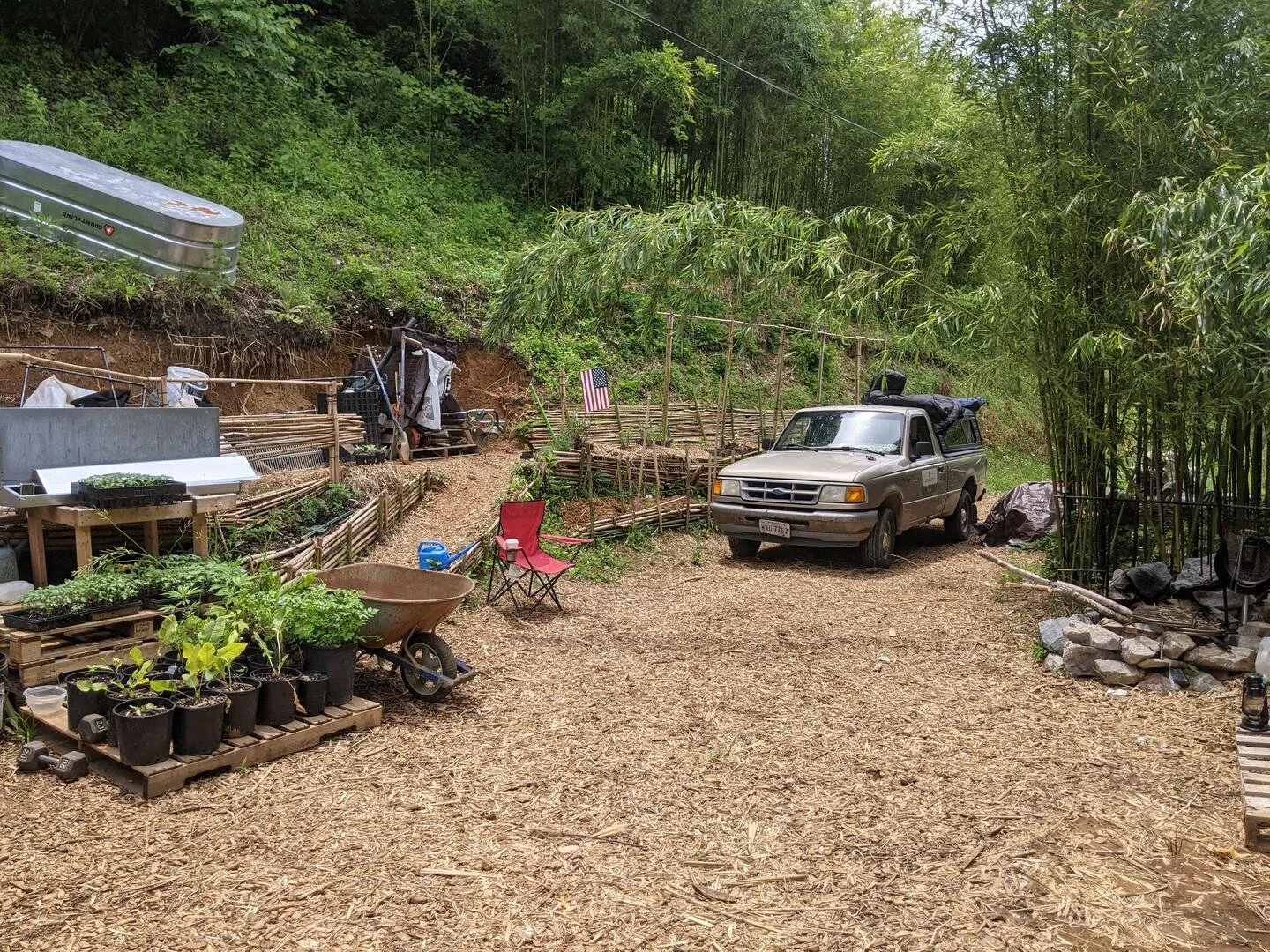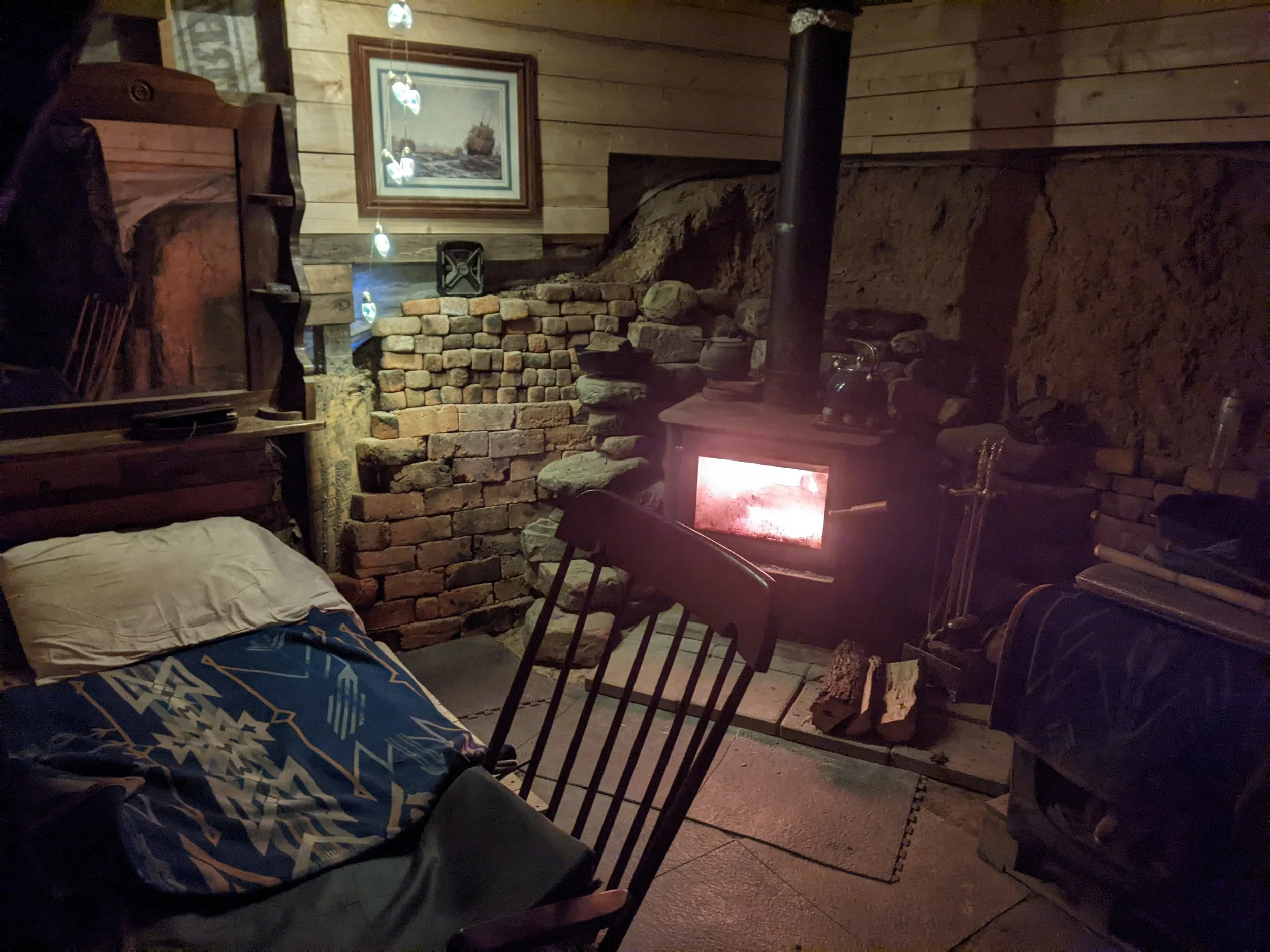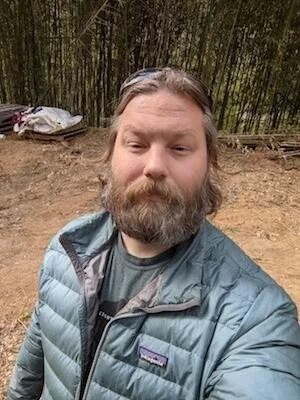The willingness to flower
by Captain Lucius 'Hub' Antares
Editorial note: Written at the request of Thoughtfox, this essay by Captain Lucius ‘Hub’ Antares—an American—gives our readers a sort of sneak peek into Catalytic Facets, a book he has recently started writing about his own practice and philosophy of permaculture. Leading up to the essay’s sneak peek component, however, is Hub’s brave, poignant attempt to share with the wider world why he has had to forgo fatherhood while dedicating himself to building a ‘sustainable’ future.
Through his work on Junibarra, the permaculture farm he has created in South-West Virginia, and his book-in-progress, Hub seeks to offer a practical, ethical approach to creating lasting change. This is Hub’s first essay in a series for Thoughtfox.
I never needed to be warned. I knew from the beginning—felt it intuitively—what I was choosing to give up. The risk of loss has always been as immediate as the imperative to refrain. And so, in my mid-forties, I am single and childless. Hair silvering.
I chose this path. I own my every step, every stumble, every scar. I made that choice because I knew firsthand the perils of having children without the means to properly raise and care for them. I was that kid. I refuse to be that parent.
But this choice was never about avoiding responsibility. It was about upholding it.
Yet responsibility is not just about what we choose to do—it is also about what we refuse to do.
The barriers
I couldn’t find a way of getting the necessary resources. The minimum required has not only been out of reach but has been pushed further away, bit by bit, to the point where the gulf I would have to cross—in crude dollar terms—has become absurd. But this is about more than money. Time, energy, stability—these are also essential.
When you have a child, a family, there are things you must provide, questions you must have answers to, whether you are prepared or not. I could not find a way to gather what I knew was necessary, not without either willingly enslaving myself to the meaninglessness of someone else’s materialism (which would betray my own integrity and pull me away from my responsibility as a father) or taking advantage of others for personal gain (which would betray human dignity and rob others of the same rights I claim to uphold).
So I live down by the tracks, poor, where I belong. I decided this when I was just a boy, with a very human capacity to understand. I could not have spoken of it this way then, but the truth was carved into me early—when my teeth were new.
Still, refraining from fatherhood has never meant refraining from building something meaningful. If I could not create the right conditions for a family, I could still create something lasting, something that upholds the responsibilities I believe in.
Hub’s abode in Christiansburg, Virginia, USA. (Photo credit: Captain Lucius 'Hub' Antares)
The conviction
I declare myself this way to you now with purpose.
The only way out is through.
Over the years, I have given myself pep talks on this concern. Maybe, I should say, I have been giving myself one pep talk that has been evolving over time—but with one core message:
If you give up, you fail. Your child is counting on you. Your mate is counting on you. You have to live long enough to meet them. Your community is counting on you. Get up. Keep going. You made the right choice because, in this context, it’s the only chance you have without betraying your possible child, your possible mate, and your actual community to fulfill your own selfish impulse.
I cannot burn our future’s crops to heat my stew tonight.
But survival alone is not enough. If I have denied myself one path, then I must ensure I am fully committed to another.
The work
This quest has led me to my life’s work: building Junibarra, a small-holding permaculture farm, and writing my book, Catalytic Facets: An Introduction to Ecological Systems Design.
Originally, I turned to farming as a practical solution—a way to create an adequate and desirable context for fatherhood. Or, more completely, for parenthood and childhood. But over time, the vision deepened. The farm itself became the answer, not just for me, but for a wider community.
A vegetable garden on Hub’s permafarm (Photo credit: Captain Lucius 'Hub' Antares)
Some reasons for this should be obvious:
Farming is the original work-from-home job.
It provides rich, experiential learning opportunities for children.
It strengthens familial bonds through co-laboring.
It fosters community.
It instills practical habits, healthy challenges, and a connection to the natural world.
Beyond this, farming—especially under permaculture principles—is an act of healing and beautification; it is a stabilizing force, and a means of restoring integrity where faith, hope, and trust have been damaged. It is a way to provide—not just food but a better future.
Yet no single farm, no matter how well designed, is enough to create the change we need. That is why my work cannot stop at Junibarra—it must be shared, adapted, and expanded.
Glimpses of Hub’s design style at his permafarm, Junibarra
The guiding principles
At its core, ecological systems design is built upon three fundamental ethics: earth care (respecting and nurturing the natural world); people care (ensuring human well-being and dignity); and fair share (distributing resources responsibly and equitably).
These are not abstract ideals. They are the foundation of real, practical solutions—solutions that allow us to provide for our needs without betraying our future.
This is my way of casting a net and drawing up our total human birthright of wisdom—delivering an astrolabe with which we may each plot our course with respect to ourselves and others.
The mission
This system works for me, and I demonstrate it through the design and operation of Junibarra. But it wouldn’t be enough if it only worked for me, or if the only thing it could produce were more Junibarras.
That’s why my work is non-prescriptive—it is meant to be a flexible toolkit, applicable across different contexts, specializations, and communities. In Catalytic Facets, I render out this methodology, making use of definitions and examples, but without rigid formulas. I strive to make it structurally similar to the great texts of permaculture, such as the following:
Permaculture: A Designer’s Manual by Bill Mollison
Permaculture: Principles and Pathways Beyond Sustainability by David Holmgren
Gaia’s Garden by Toby Hemenway
Ecological systems design is scalable—deployable at the individual level, within communities, and even in policymaking. It eliminates the need for top-down control and dissolves the impulse to isolate oneself in some utopian retreat.
This is how I reconcile the choice I made long ago. If I do not have children of my own, I still take responsibility for the world in which they would have grown up.
An area within the perimeter of Junibarra (Photo credit: Captain Lucius 'Hub' Antares)
The Answer
How do we solve our problems? With ecological systems design, you are empowered to literally change the world right around you, by answering that question—for yourself and with others—as you see fit. It sets us up for success in working together, collaborating into a future through efforts that excite and cause no shame, no fight, no blame. All of our answers give rise to a cumulative resolution. Not one person. Not one shriveled little group of people huddled on top of a great big pile of stuff.
Catalytic Facets is a navigation tool for overcoming oppression and violence without resorting to oppression and violence. A reified parameter set for all power relationships, expanded from the artificial limitations of ‘who has power over whomʼ by answering with a most authentic human truth, simultaneously precise and ambiguous, at the heart of all adequate and desirable means and ends formulations: I/I (I and I).
Hub’s humble, yet tasteful, abode from the inside (Photo credit: Captain Lucius 'Hub' Antares)
The methodology I lay out in the book allows for competitive strategies and materially bound systems designs as potentially useful options: We can still ‘ownʼ property and take goods to market. Exactly how any of that emerges would have to be decided by specific people asking specific questions in specific contexts and using ecological systems design to generate solutions--which, again, I am not prescribing.
So, readers can go ahead, challenge the methodology, interrogate it, question it. They can throw at it every doubt, every dream, every fear, every desire they can find. Thatʼs what itʼs made for! (You'll only make it stronger!)
Amid a quickly deteriorating environmental situation, the future of my community feels uncertain—and I’m writing a guidebook to help it navigate that future, starting locally and building outward.
Captain Lucius 'Hub' Antares is an Ecological Systems Designer who created Junibarra, a permafarm in South West Virginia, USA. Hub hopes to disseminate his message and lessons of sustainability in his locality and globally—and interested parties are invited to contact him via this form. Hub is also busy writing a book on his approach to permaculture and general sustainability.

